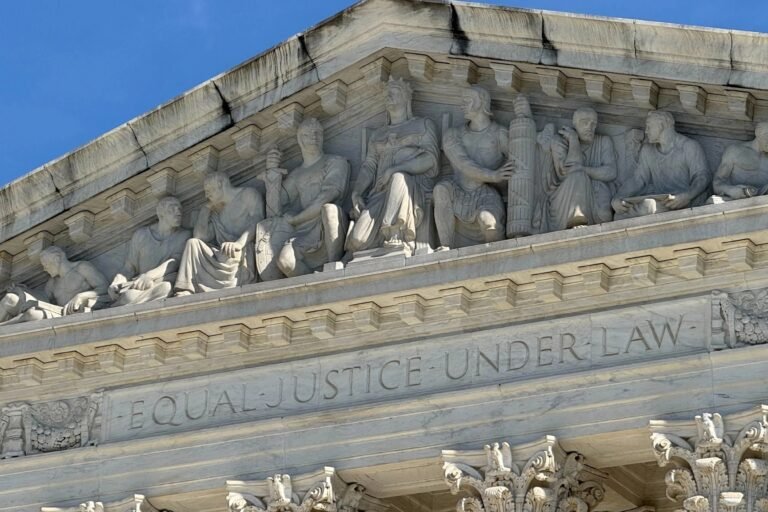In A.J.T. v. Osseo Area Schools, Independent School District No. 279, the Supreme Court considered the obligation of schools to refrain from discriminating on the basis of a disability. Specifically, the justices considered whether students face a higher bar in challenging such activity than disabled individuals do in other contexts. Thursday’s opinion by Chief Justice John Roberts, joined by all the justices, firmly rejected the higher standard adopted by the lower courts.
The case involved a pair of federal statutes that bar discrimination on the basis of disability, Section 504 of the Rehabilitation Act and Title II of the Americans with Disabilities Act. Together with the Individuals with Disabilities Education Act, those statutes regulate the accommodations that local schools afford children with disabilities.
In part because of the detailed procedures the latter act establishes for identifying appropriate individualized educational programs, known as IEPs, for individual students, many lower courts have been reluctant to allow students to recover damages based on claims of discrimination without proving an actual intention on the part of the school districts to discriminate. The Supreme Court on Thursday rebuffed that approach, holding that the standard for proving discrimination is the same for all those with disabilities, students or otherwise.
Roberts started the unanimous ruling by pointing out that “the general approach” of the lower courts “outside the context of … education” has been to allow injunctive relief under the two anti-discrimination statutes “without proving intent to discriminate.” But Roberts added that the same courts require claimants to show “intentional discrimination” if they wish to recover damages. “A majority” of appellate courts require “proof that the defendant acted with ‘deliberate indifference,’” Roberts wrote, without requiring “a showing of personal ill will or animosity toward the disabled person.”
Without offering any views as to the correctness of those approaches, Roberts turned directly to the question on which the court granted review, stating unequivocally that “claims based on educational services should be subject to the same standards that apply in other disability discrimination contexts.” Pointedly, he noted that “[n]othing in the text of [the antidiscrimination statutes] suggests that such claims should be subject to a distinct, more demanding analysis.” He emphasized that the statutes promise relief to “any person,” which he regards as an “expansive and unqualified” formulation “confirming applicability to every … person without distinction or limitation.”
Roberts buttressed the court’s conclusion with an historical digression, explaining that the lower courts had come to the higher standard in an effort to reconcile the anti-discrimination statutes with the detailed framework of the Individuals with Disabilities Education Act, and acknowledging that the Supreme Court initially took the same approach. The problem with that intuition, as he put it, is that “Congress apparently did not agree,” because Congress promptly added a new section to the anti-discrimination statutes, Section 1415(l), which states that nothing in the act “shall be construed to restrict or limit” relief under the anti-discrimination statutes.
Roberts closed the opinion by addressing the position of the school district. In the Supreme Court, the school district declined to defend the two-tiered standard of the lower courts, but rather argued that the standard for obtaining damages based on the anti-discrimination statutes should require proof of bad faith “across the board.” Because that position was neither addressed by the lower courts nor part of the question on which the court granted review, Roberts declined to consider it.
Although all nine of the justices joined Roberts’ opinion, two separate groups of concurring justices suggested that the court is starkly divided on the questions it did not decide to address here. On the one hand, Justice Clarence Thomas, joined by Justice Brett Kavanaugh, offered an opinion suggesting deep skepticism of the idea that a school district could be held liable for damages without proof of intent. On the other hand, Justice Sonia Sotomayor, joined by Justice Ketanji Brown Jackson, explained why requiring intent would require such a stark change in the law of disability discrimination. Sotomayor described the “elimination of architectural barriers” as “one of the central aims” of the law, and suggested that an intent requirement would have derailed that effort at the outset.
Given the concession of the school district, the decision here probably surprised no informed observer. The concurrences, though, showed a sobering discord among the justices on the deeper questions the dispute raised.
Posted in Featured, Merits Cases
Cases: A.J.T. v. Osseo Area Schools, Independent School District No. 279
Recommended Citation:
Ronald Mann,
Unanimous court rebuffs higher standard for discrimination claims by children with disabilities,
SCOTUSblog (Jun. 12, 2025, 6:32 PM),
https://www.scotusblog.com/2025/06/unanimous-court-rebuffs-higher-standard-for-discrimination-claims-by-children-with-disabilities/

